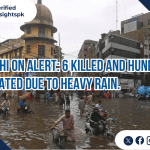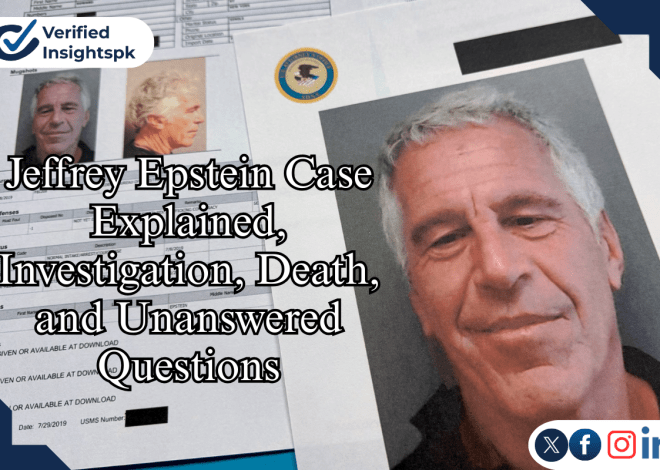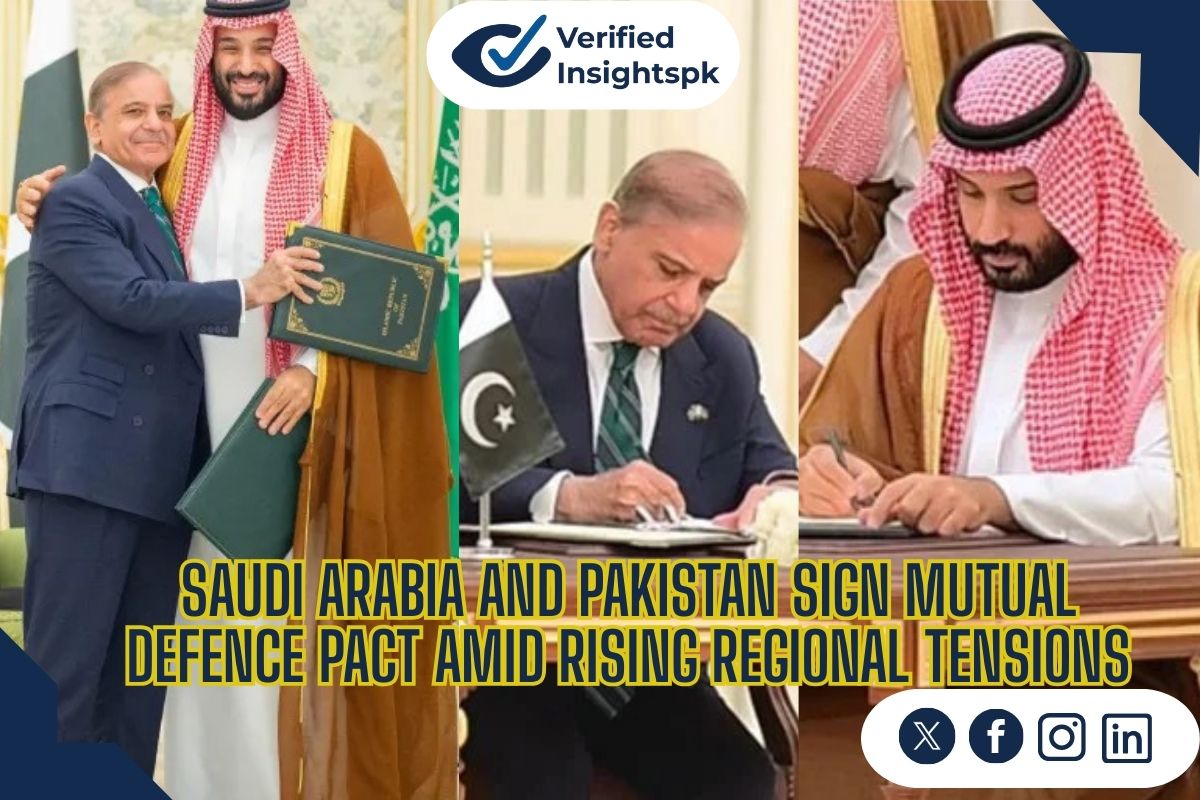
Saudi Arabia and Pakistan Sign Mutual Defence Pact Amid Rising Regional Tensions
DUBAI/ISLAMABAD, Sept 17 – Saudi Arabia and nuclear-armed Pakistan have signed a mutual defence pact, formalising decades of security cooperation at a time of growing regional instability.
The agreement, signed on Wednesday, is being seen as a major step forward in institutionalising defence ties between the two close allies. It comes amid shifting global alliances, heightened tensions in the Middle East, and doubts about the United States’ role as a long-term security guarantor for Gulf Arab states.
Why This Pact Matters
For years, Gulf monarchies have relied on Washington for defence. However, recent events — especially Israel’s strikes on Qatar last week — have raised concerns about U.S. reliability.
Saudi officials emphasised that the pact was not a swift response to any one country or event. Instead, they described it as the result of years of discussion and planning, meant to strengthen an already deep partnership.
According to one senior Saudi official:
“This agreement is not about targeting any specific country. It is about formalising a longstanding cooperation between Saudi Arabia and Pakistan.”
The Gaza War and Regional Pressure
The ongoing Gaza war has reshaped regional dynamics. Arab states are under pressure to respond to Israel’s military actions. The attack on Doha, which attempted to target Hamas leaders during ceasefire talks mediated by Qatar, triggered outrage across the Arab world.
Qatar, already hit once by Iran earlier this year, has now faced direct attacks twice within twelve months. This has created fresh urgency among Gulf states to strengthen defence strategies.
Balancing India and Pakistan
Saudi Arabia also faces the challenge of balancing ties with Pakistan’s long-time rival, India, which is also a nuclear power.
The Saudi official acknowledged this, stating:
“Our ties with India are stronger than ever. We will continue to grow these relations while also seeking peace and stability across the region.”
Does the Pact Include Nuclear Protection?
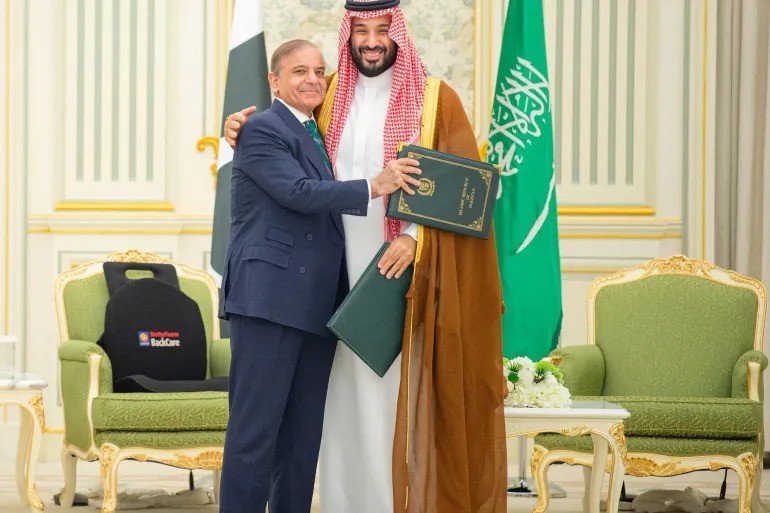
When asked if the deal requires Pakistan to extend its nuclear umbrella to Saudi Arabia, the Saudi official declined to give specifics.
Instead, he emphasised that the agreement is comprehensive, covering “all military means” for joint defence.
Signing Ceremony in Riyadh
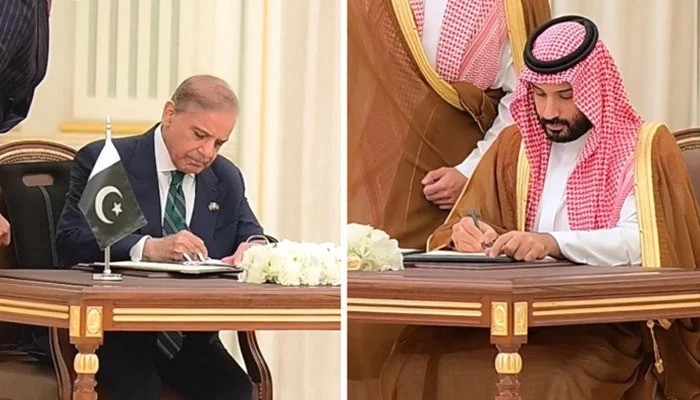
The signing was broadcast on Pakistani state television. It showed Prime Minister Shehbaz Sharif warmly embracing Saudi Crown Prince Mohammed bin Salman, the kingdom’s de facto ruler.
Pakistan’s Army Chief, Field Marshal Asim Munir, also attended the ceremony, highlighting the military weight behind the pact. Munir is widely regarded as one of the most powerful figures in Pakistan.
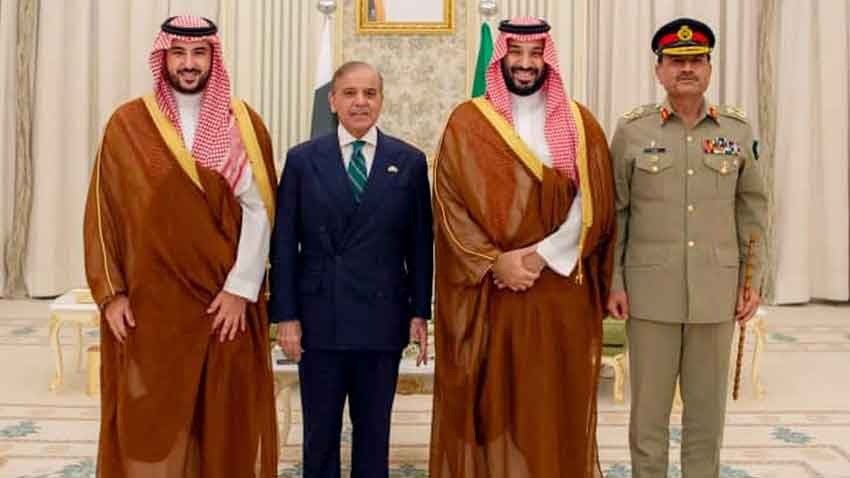
What the Agreement States
According to a statement released by Pakistan’s Prime Minister’s Office, the pact is designed to:
- Enhance defence cooperation between the two nations.
- Strengthen joint deterrence against any external aggression.
- Treat an attack on either country as an attack on both.
The statement added:
“This agreement reflects the shared commitment of both nations to regional and global peace, while ensuring their own security.”
A Strategic Shift
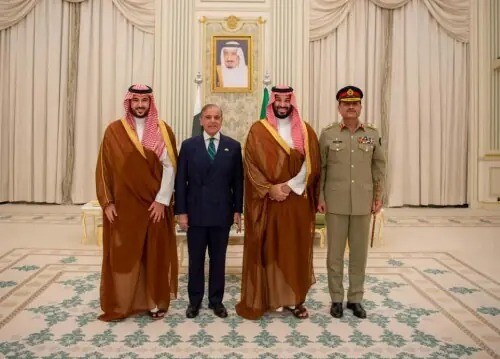
This defence pact could reshape security calculations in the Middle East and South Asia.
Gulf states are exploring multiple options for their safety — balancing relations with Iran, building ties with Israel, and now, reinforcing military links with Pakistan.
The move underlines a reality: as the U.S. role in the region shifts, Gulf countries are seeking new partnerships to protect their interests.


